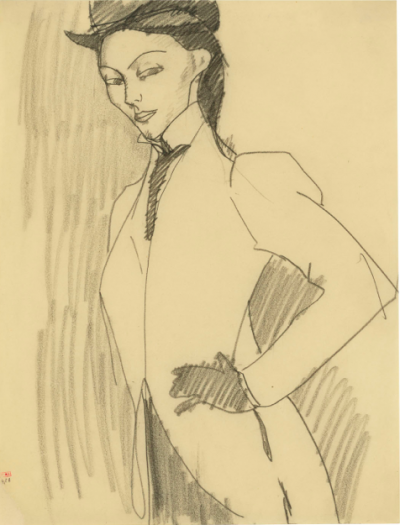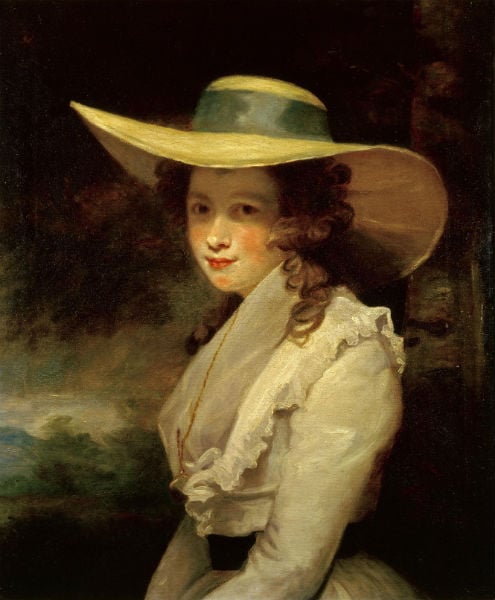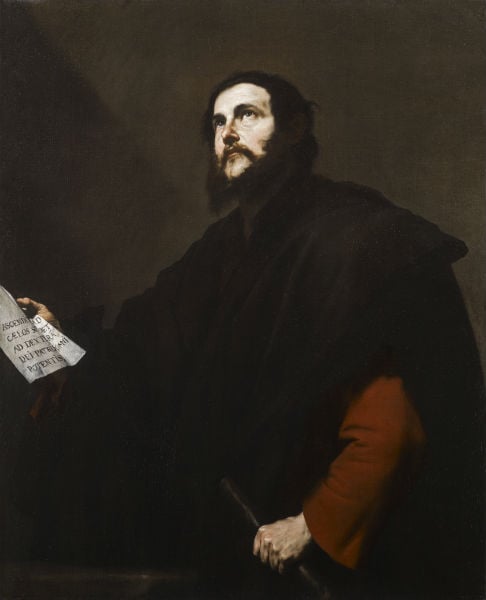


Sir Joshua Reynolds, Lavinia, Countess Spencer 1762–1831, aged 23 or 24 (1785–86).
Photo: Ben Elwes Fine Art.
The success of art fairs, and their ever-increasing number, might suggest that cruising from booth to booth has become the “new normal” way of seeing and buying art. It’s reassuring, quick, and efficient—what more could a time-pressed collector want?
A more individual experience, perhaps. And this is exactly what London Art Week, which starts today and will continue until July 11, has to offer. “Fairs are useful and very necessary, but what we do here is slightly more personal,” explains Lowell Libson of the eponymous gallery, a specialist of British art from the 17th to the 20th century and one of the major forces behind the event. “It allows a degree of discretion. I’m able to show clients, or potential clients, pictures which I probably would not wish to take into a more public arena, because I want to introduce them to clients in a much more discreet way.”

Amedeo Modigliani, Kneeling Blue Caryatid (c. 1911)
Photo: Richard Nathanson
Over 50 antique and Old Masters dealers are holding special exhibitions in their premises, and out-of-town gallerists are setting up shop all over Mayfair and St James’s, showcasing artworks that range from Egyptian bronzes at Rupert Wace Ancient Art to rare Modigliani drawings at Richard Nathanson.
London Art Week is the reunion of Master Drawings and Sculpture Week and Master Paintings Week, which were originally conceived as companion events to the important Old Masters summer auctions. “It was slightly wasteful of resources, and slightly confusing to have these two very closely related events taking place in London,” says Libson, “so we came together under the banner of London Art Week, which gives extraordinary critical mass.”

Jusepe de Ribera, Saint James the Greater (c. 1632).
Photo: Fergus Hall Master Paintings.
A newly authenticated picture of Saint James the Greater by the Baroque master Jusepe de Ribera, also known as Lo Spanoletto or “the Little Spaniard,” will no doubt attract much attention in the coming days. When dealer Fergus Hall first came across it, it was in poor state and catalogued as an unsigned studio piece. Intensive restoration work revealed the artist’s signature and further details. The painting has since been authenticated by Ribera scholar Nicola Spinosa. It is being offered at Fergus Hall Master Paintings for £1.1 million.
Among the other highlights this year is a pastel by Alfred Sisley, The Cliffs at Langland Bay, Wales (1897), picturing an area the painter visited during his honeymoon. The piece is presented as part of Stephen Ongpin Fine Art’s “The Art of Pastel: Drawings from the 18th to the 20th Century” exhibition, which also includes work by Edvard Munch and Claude Monet. A portrait of Princess Diana’s ancestor Lavinia Countess Spencer painted by Sir Joshua Reynolds will be shown to the public for the first time ever at Ben Elwes Fine Art. That the gallery has chosen not to show in any art fair and concentrates instead on London Art Week as its primary platform for attracting international visibility and sales speaks volumes. As does the fact that the week is now seen as a key date in the art calendar by museum representatives from New York’s Metropolitan Museum of Art, Amsterdam’s Rijksmuseum, and Los Angeles’s J. Paul Getty Museum, all making the trip this year.

Bust of a Young Woman, Rome, 1630–1640.
Photo: Galerie Sismann.
Private buyers are also set to benefit from London Art Week’s intimate approach. “It allows collectors, especially those coming into this fresh, to actually get a sense of how individual dealers operate, what their ethos is, how they approach things,” continues Libson. “It’s far more revealing and comfortable to see them on their own premises, than in the square box of a stand in an art fair.”
[Featured image: Amedeo Modigliani, Final Known Study for L’Amazone (1909). Photo: Richard Nathanson.]





